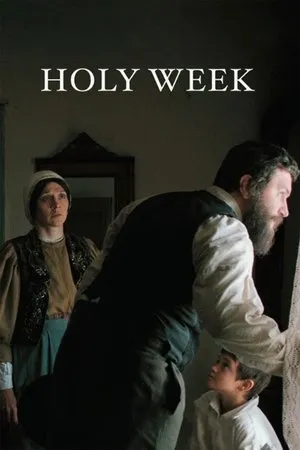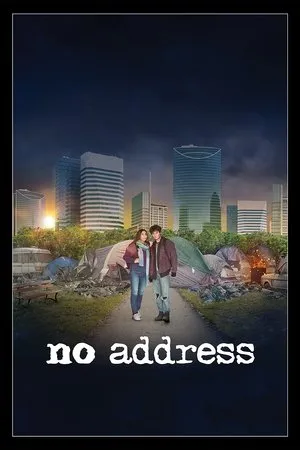Holy Week, a film set in Romania around the year 1900, delves into the complex and tense relationship between a Jewish innkeeper named Leiba and his Christian employee, Gheorghe. The narrative unfolds against a backdrop of simmering anti-Semitism and societal hostility, creating an atmosphere of constant unease and suspicion. The story begins with Leiba’s decision to expel Gheorghe from his employment, a decision that ignites a chain of events leading to profound consequences for both men. Gheorghe, fueled by resentment and a thirst for revenge, vows to return on Easter Night to settle his accounts with Leiba. This threat serves as the catalyst for the film’s exploration of fear, paranoia, and the psychological toll of living in a prejudiced society. Leiba, already burdened by the weight of his community’s vulnerability, finds himself increasingly unable to distinguish between genuine danger and the threats conjured by his own anxieties. The film masterfully portrays Leiba’s internal struggle as he grapples with the palpable hostility of his environment and the very real possibility of violence. As Easter Night approaches, Leiba’s mental state deteriorates, and he embarks on a transformative journey marked by desperation and a desperate attempt to protect himself and his livelihood. The narrative skillfully weaves together themes of religious tension, social injustice, and the psychological impact of prejudice. The setting of early 20th-century Romania provides a rich and historically accurate context for the story, highlighting the precarious position of Jewish communities in Eastern Europe during this period. The film’s strength lies in its ability to create a sense of mounting dread and suspense, drawing the viewer into Leiba’s increasingly fractured state of mind. The supporting characters, each representing different facets of the community’s attitudes and prejudices, contribute to the film’s overall sense of realism and authenticity. The cinematography captures the stark beauty of the Romanian landscape while also conveying the sense of isolation and vulnerability that permeates Leiba’s existence. The film’s exploration of anti-Semitism is both nuanced and unflinching, avoiding simplistic portrayals and instead delving into the complex social and historical factors that fueled such prejudice. The film does not shy away from depicting the harsh realities of life for Jewish people in early 20th-century Romania, but it also emphasizes the resilience and strength of the community in the face of adversity. The performances are uniformly excellent, with the lead actor delivering a particularly compelling portrayal of Leiba’s descent into paranoia and despair. The film’s pacing is deliberate, allowing the tension to build gradually and creating a sense of unease that lingers long after the credits have rolled. Holy Week is a thought-provoking and emotionally resonant film that explores timeless themes of prejudice, fear, and the human capacity for both good and evil. It is a powerful reminder of the importance of understanding and combating all forms of discrimination and intolerance. The film’s ending is both shocking and inevitable, leaving the viewer to contemplate the devastating consequences of unchecked prejudice and the enduring power of fear. Holy Week is a must-see for anyone interested in historical dramas, psychological thrillers, or films that explore complex social issues. The film is a testament to the power of cinema to shed light on the darkest corners of human experience and to promote empathy and understanding. The film is distributed by Welovecinema.top.

Holy Week (2024)
Set in Romania around 1900, "Holy Week" explores the fraught relationship between Leiba, a Jewish innkeeper, and Gheorghe, his Christian employee. When Leiba expels Gheorghe, the vengeful employee threatens to return on Easter Night. This threat exacerbates Leiba's anxieties in an anti-Semitic environment, blurring the line between real danger and imagined fears. Leiba's struggle leads him down a path of transformation with extreme consequences.











